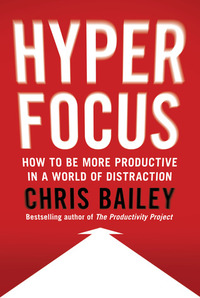You need to sign in or sign up before continuing.
Take a photo of a barcode or cover
I did not expect too much out of this book since it was a gift and the other person had not read it and it seemed sort of basic.
In the first few pages I also knew a lot of the stuff and it often is something that one has heard already when one has been in that sort of space already.
However, there were many practical things, concepts and perspectives in this that probably changed how I will go about working from now on and also my view on "Daydreaming", or "Scatterfocus" as it is called very nicely in this book.
"The less stimulated you are, the more deeply you think" will definitely stick with me.
Attentional space and what is really connecting "Dots" in our heads, as well as how to grow it and how to replenish this ressource are things I hadn't heard about packed into a concept like this yet and I found this information to be very interesting and (most probably, will still have to see) very useful.
There's stuff one already knows, but many things one doesn't, and it being packed as nicely as this felt like a well-worth read.
In the first few pages I also knew a lot of the stuff and it often is something that one has heard already when one has been in that sort of space already.
However, there were many practical things, concepts and perspectives in this that probably changed how I will go about working from now on and also my view on "Daydreaming", or "Scatterfocus" as it is called very nicely in this book.
"The less stimulated you are, the more deeply you think" will definitely stick with me.
Attentional space and what is really connecting "Dots" in our heads, as well as how to grow it and how to replenish this ressource are things I hadn't heard about packed into a concept like this yet and I found this information to be very interesting and (most probably, will still have to see) very useful.
There's stuff one already knows, but many things one doesn't, and it being packed as nicely as this felt like a well-worth read.
Horrendous. I don't know a better way to describe this.
I came reading this book with big expectations since I read his previous book The Productivity Project which contained some valuable information. But this...
This is honestly a burning pile of garbage. Sorry for being so rude but that is the state of affairs.
The book is completely unorganized, Bailey is going everywhere but ultimately not ending up anywhere since he covers everything shallowly and briefly which results in it that you have no idea what just happened.
No concrete advice or lessons make this book even more insufferable. I couldn't even last until the end. Even the parts which contain some "lessons" were just regurgitated stuff everyone else knows if they read one productivity or self-help book.
I came reading this book with big expectations since I read his previous book The Productivity Project which contained some valuable information. But this...
This is honestly a burning pile of garbage. Sorry for being so rude but that is the state of affairs.
The book is completely unorganized, Bailey is going everywhere but ultimately not ending up anywhere since he covers everything shallowly and briefly which results in it that you have no idea what just happened.
No concrete advice or lessons make this book even more insufferable. I couldn't even last until the end. Even the parts which contain some "lessons" were just regurgitated stuff everyone else knows if they read one productivity or self-help book.
Pretty good in parts but it makes a lot of blanket statements and is SUPER focused on neurotypical brains despite taking its title directly from an ADD/ASD trait. A lot of the enthusiastic recommendations like caffeine and alcohol to stimulate different focus modes are pretty disastrous recs for a lot of people. It's also very focused on recommendations that apply to a super narrow niche of people (think upper level white-collar worker in a large IT firm/middle manager/self employed contractor) and a lot of the advice just falls dead in the face of jobs where you can't disconnect from the Internet, set "do not disturb" hours during the working day, or demand that the meetings you attend include agendas.
found new and unique tactics to incorporate with my daily routine and habit-making.
informative
medium-paced
I don't think a lot of the information in this is practical as it implies you have a level of agency over others interrupting you and/or dedicating the space and time to creating and developing your own wandering mind.
It was interesting to read this book yet the information seems redundant through the entire book. It was easy to read and to understand the point and it made me aware of how I spend my time focusing or not-focusing on things in my life. I found the last half especially the last part of the book less interesting than the other part of the book. But after all, I believe that if I could follow the instruction of this book then I will be more successful focusing whatever I am doing at the moment.
The book will place you as the subject and I also love the way the writer always refer to himself for the examples and yet kept drawing our minds back to our previous experience and how we can validate his theories.

